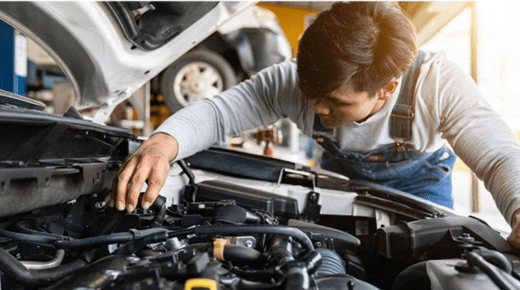Preventative Maintenance – Key Strategies for Keeping Your Vehicle in Top Shape

Maintaining a vehicle’s performance and longevity requires a proactive approach. Preventative maintenance involves regular inspections, timely repairs, and adherence to manufacturer recommendations. This comprehensive strategy not only helps in avoiding unexpected breakdowns but also ensures your vehicle remains in optimal condition. Below are key strategies for effective preventative maintenance, including essential aspects of car repair and smash repairs.
Regular Maintenance Checks
1. Scheduled Oil Changes
One of the most critical aspects of vehicle maintenance is changing the oil regularly. Oil lubricates the engine’s moving parts, reducing friction and wear. Over time, oil degrades and accumulates contaminants, which can lead to engine damage. Adhering to the manufacturer’s recommended oil change intervals, typically every 3,000 to 7,500 miles, is essential for preserving engine health.
2. Tire Care
Proper tire maintenance is crucial for vehicle safety and performance. Regularly check tire pressure, tread depth, and alignment. Maintaining correct tire pressure improves fuel efficiency and ensures optimal handling. Rotate your tires every 5,000 to 7,500 miles to promote even wear. Also, ensure that your tires are balanced and aligned to prevent uneven wear and potential damage.
3. Fluid Levels and Quality
Besides engine oil, several other fluids need regular attention, including coolant, brake fluid, transmission fluid, and power steering fluid. Each fluid plays a vital role in vehicle operation:
- Coolant: Prevents the engine from overheating and protects against freezing.
- Brake Fluid: Essential for safe braking performance.
- Transmission Fluid: Ensures smooth shifting and prevents transmission damage.
- Power Steering Fluid: Provides the necessary hydraulic pressure for steering.
Regularly check and top up these fluids as needed, and follow the manufacturer’s recommendations for fluid replacement intervals.
Car Repair: Addressing Issues Promptly
1. Diagnostic Testing
Modern vehicles are equipped with onboard diagnostic systems that can detect and alert drivers to potential issues before they become severe. Regular diagnostic testing can help identify problems such as engine misfires, transmission issues, or exhaust system faults. Promptly addressing these issues can prevent costly repairs and extend the lifespan of your vehicle.
2. Brake System Maintenance
The braking system is one of the most critical components for vehicle safety. Regular inspection of brake pads, rotors, and calipers is essential. Worn brake pads can compromise stopping power and lead to increased repair costs if not addressed promptly. If you notice squeaking, grinding, or reduced braking performance, seek car repair services immediately.
3. Battery Care
A well-maintained battery is crucial for reliable vehicle performance. Regularly check the battery’s charge and inspect it for signs of corrosion or leaks. Ensure that the battery terminals are clean and securely connected. Replacing the battery before it fails can prevent unexpected breakdowns.
Smash Repairs: Handling Collision Damage
1. Assessing Damage
In the event of a collision, it’s essential to have your vehicle assessed for damage, even if it appears minor. Smash repairs involve not only visible damage but also hidden issues that can affect the vehicle’s safety and performance. Professional assessment ensures that all damage is identified and addressed.
2. Body and Frame Repairs
Smash repairs often involve fixing or replacing damaged body panels and aligning the vehicle’s frame. Proper bodywork is crucial for maintaining the structural integrity of the vehicle and ensuring it meets safety standards. Misalignment or poor repairs can affect vehicle handling and increase the risk of future accidents.
3. Paint and Finish Restoration
After collision repairs, restoring the vehicle’s appearance is essential. Professional smash repairs include repainting and finishing to match the original look of the vehicle. High-quality paintwork not only enhances aesthetics but also protects against rust and corrosion.
Conclusion
Preventative maintenance is vital for ensuring that your vehicle remains in top condition and performs reliably. By adhering to scheduled maintenance checks, addressing car repairs promptly, and handling smash repairs with care, you can significantly extend the lifespan of your vehicle and enhance its safety and performance. Regular attention to these aspects will help you avoid costly repairs, improve driving experience, and keep your vehicle running smoothly for years to come.



